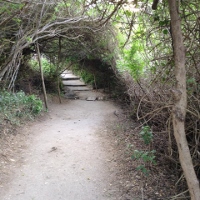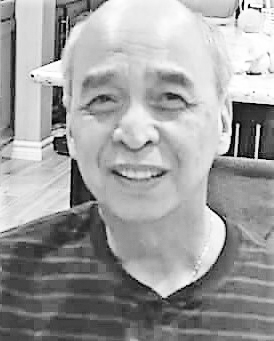 As the Ateneo de Naga University celebrates its 75th founding anniversary this year, I am tempted to reflect on what I have given back to my alma mater. But afraid that I will probably get an answer that I have not given much, I decided to change the question to: What has Ateneo de Naga done for me?
As the Ateneo de Naga University celebrates its 75th founding anniversary this year, I am tempted to reflect on what I have given back to my alma mater. But afraid that I will probably get an answer that I have not given much, I decided to change the question to: What has Ateneo de Naga done for me?
Every alumnus and alumna will probably answer the question differently. Their individual responses will be based on what the school has done to make their lives successful and meaningful. Some will probably be eternally grateful to the Ateneo for what the school has done to their intellectual, social, and spiritual development. Others will remember the school’s tough discipline or their favorite august personages like their teachers, their moderators, or their coaches. Whatever it is, everyone will have a story to tell.
My story is slightly different.
After almost fifty years since our high school graduation in 1966, what I have realized in my life’s journey as a political activist, an immigrant in a foreign land, a father, and now a grandfather, is that I always go back to a clause that I learned from my Jesuit mentors. The clause gives meaning or a different perspective to what I do or do not do. The clause goes like this: “And surrender it that You may dispose it according to Your will.”
The clause actually comes from “Suscipe,” a prayer written by St. Ignatius de Loyola, founder of the Jesuits. “Suscipe is the Latin word for “receive.” The prayer goes:
“Take Lord and receive all my liberty, my memory, my understanding and my whole will. You have given me all that I have and I possess. I restore it all to You and surrender it that You may dispose it according to Your will. Give me only Your love and Your grace, and I am rich enough and desire nothing more.”
The prayer strikes me as a prayer of surrender to God.
Life is so difficult to fathom most of the time that you just have to surrender everything that you do or what happens around you to a higher Being, hoping that things are not as bad as they appear and will turn out for the better. If not, at least you try to understand.
When my daughters got married, there were many concerns that crossed my mind notwithstanding that my sons-in-law are both caring and loving persons. I would often ask myself, “What if they divorce my daughters?” Truth to tell, there is not much that I can do as a father. Amidst the uncertainty, all I can say is “Suscipe.”
During the last three months, four people I have known since high school – Chito Perez, Bitu Torte, Cecile Sto. Domingo, and Merle Camacho – died unexpectedly, leaving in me a feeling of helplessness when confronted by the ultimate reality of death. Amidst the feeling of helplessness, all I can say is “Suscipe.”
Last week I read in this paper how Gerlie Alpajora, an anti-illegal fishing advocate, was shot in cold blood in her own home in Sangay, Camarines Sur, by unknown assailants. She was shot while sleeping with her two young children. Amidst the brutality of it all and with her two young children in mind, all I can say is “Suscipe.”
When I think of how Xavier, my grandchild, will grow up in a world full of violence and limited opportunities, I cringe at the thought of his future and all I can say is “Suscipe.”
The release of Sen. Juan Ponce Enrile, accused of plunder, casts doubt on the impartiality of the Supreme Court. When I think of the other poor and elderly prisoners in New Bilibid Prison who do not have the stature of an Enrile, all I can say is “Suscipe.”
We live in a time and place where we are offered so many choices. In many cases, it is easy to accept the consequences when we are in control, when decision making is ours to make. But when we are not in control of an event or a happening, like homes burning down or people dying for whatever reason, we look for someone or something to cling to and life becomes meaningful.
I wonder what my graduate students at the Ateneo de Naga whom I am preparing to be professional teachers think about the death of my classmate or the children whose mother has disappeared with no clue of her whereabouts or a fellow Ateneo de Naga alumnus whose wife has just been diagnosed with cancer.
There is no easy answer.
To many of my students who may not have the answers to life’s questions and whose answers may defy logic and human expectations, my advice is “Suscipe.”
So, to the question of what has Ateneo de Naga done for me, the answer is “Suscipe.”










Leave a Reply